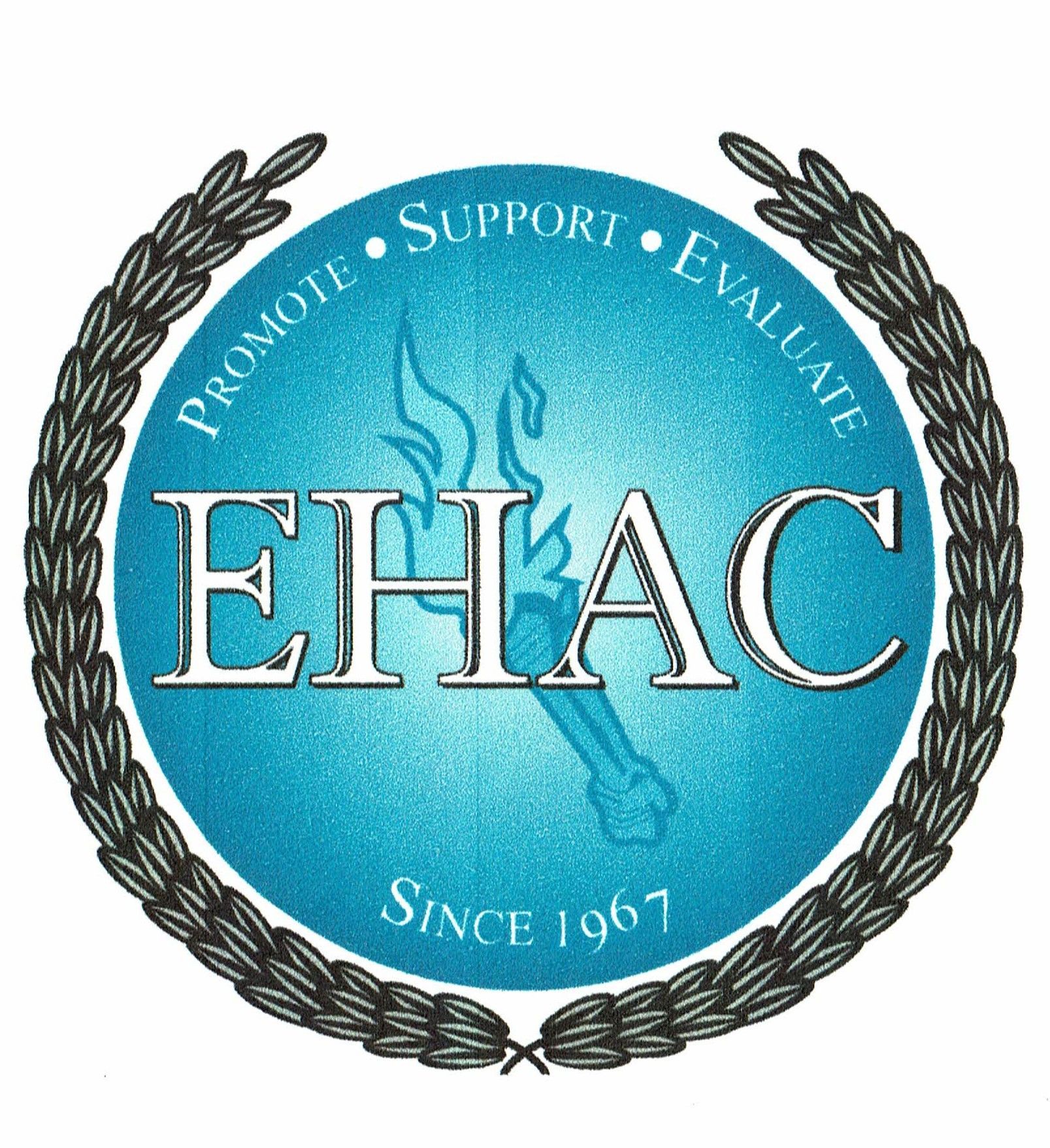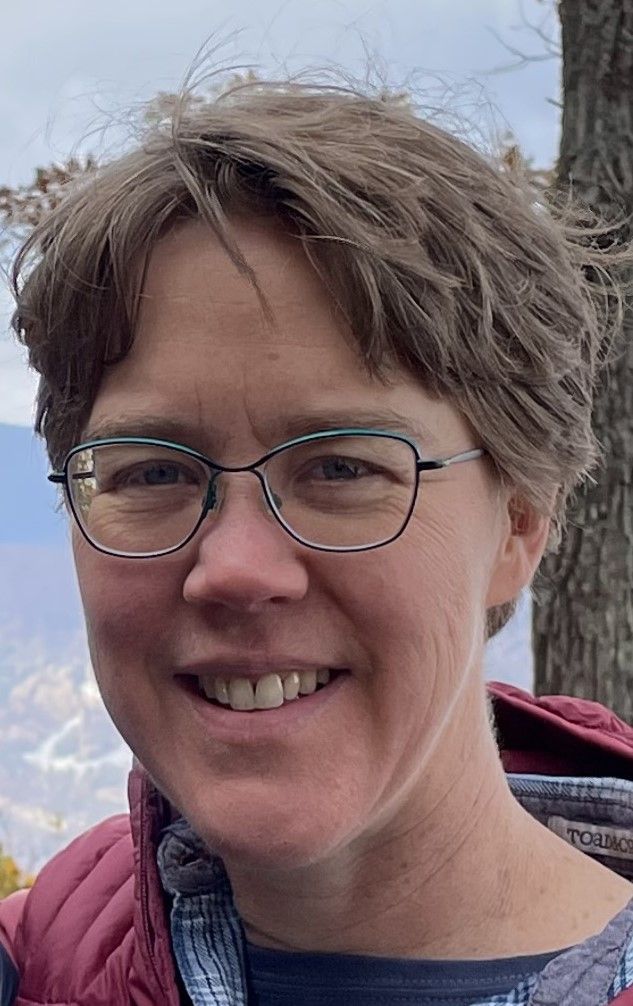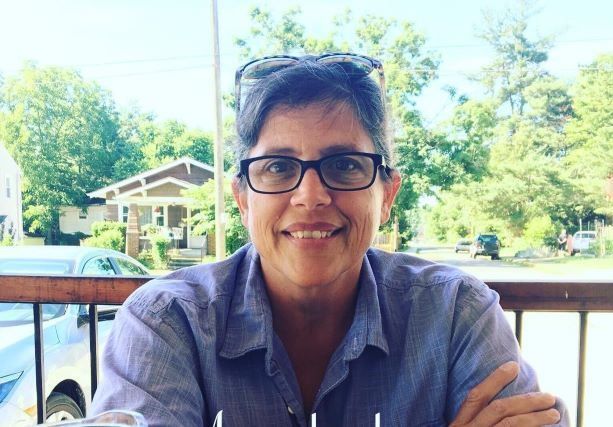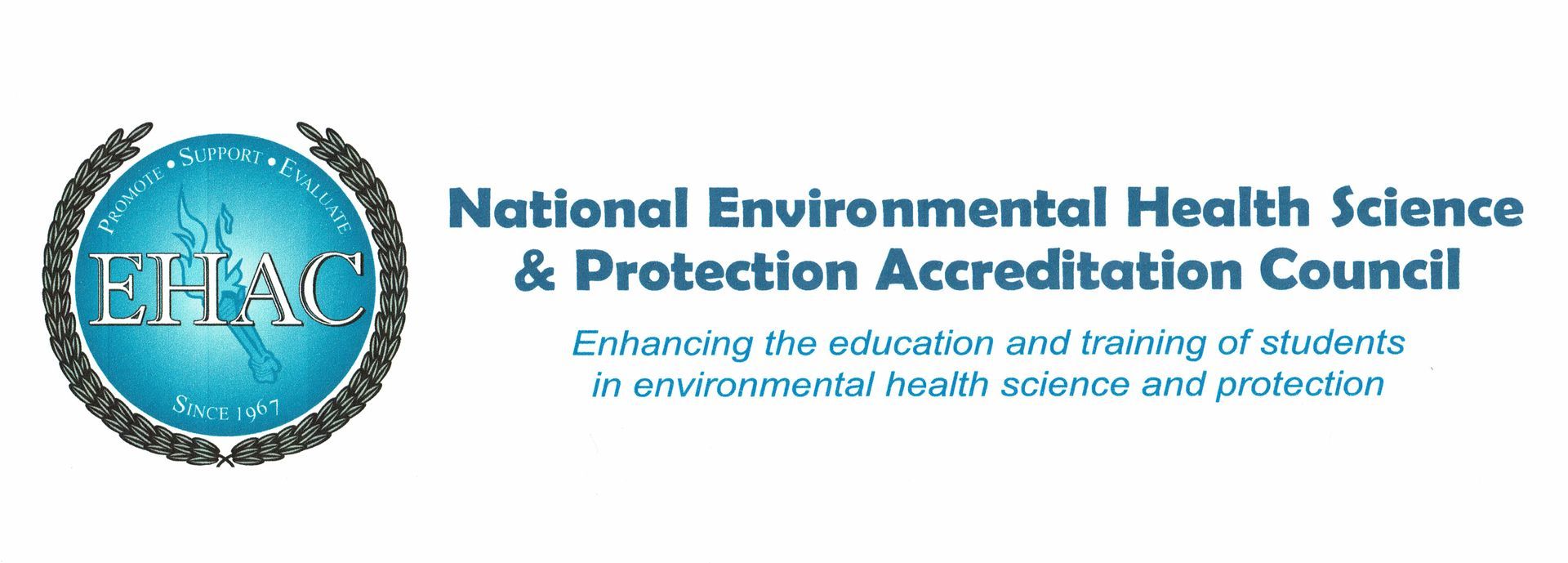The EHAC Mission Since 1967
Since 1967, EHAC has been on a mission to recruit top tier, scientifically rigorous Enviromental Health degree programs for EHAC accreditation. For the purpose of helping more students to pursue the world of opportunities that come with an Environmental Health degree. The EHAC Council and Leadership know the passion that drives the EH Program Directors and Faculty is contagious. Bringing each new generation of Environmental Health graduates into this welcoming and close-knit group of environmental health professionals continues to drive the mission of EHAC and the EH academics who inspire and inform this important work.
EHAC Board of Directors

Tania M. Busch Isaksen, PhD, MPH - Washington
EHAC Council General Chair and Academician
I am an Associate Teaching Professor and the Undergraduate Program Coordinator for University of Washington's Department of Environmental and Occupational Health Sciences. Additionally, I am co-Director of the Collaborative on Extreme Event Resilience (uwCEER.org) - a network of environmental public health researchers and practitioners working together to build climate and disaster-resilient communities through evidence-based public health policy and practice; as well as the Director of Education and Training for the Center of Health and the Global Environment (CHanGE.) In addition to my teaching and administrative responsibilities, I maintain an active, practice-based research portfolio focused on characterizing public health outcomes associated with climate exacerbated hazards such as extreme heat and wildfire smoke; evaluating efficacy of adaptation-related interventions; and translation of findings into audience-appropriate risk communication tools. I have approaching 30 years of environmental public health experience working in local public, private, and academic settings, and since joining academia I have made it my goal to bridge the worlds of practice, training, and research. I earned my PhD from the UW in Environmental and Occupational Hygiene, my MPH from the University of Washington’s eMPH Program, and my BS in Environmental Health from Colorado State University. Lasty, I have demonstrated substantial commitment to EHAC and its mission serving in multiple board positions, participating in 5 rounds of UG/G requirement/guideline revisions, and conducting numerous self-study reviews and site visits. I look forward to continuing to make progress with such an important institution.
CDR Jason Lewis, MPH, REHS - Oregon
EHAC Council Vice Chair Graduate Programs and Practitioner
Lewis' twenty-eight-year career as an Environmental Health professional began while serving as a firefighter in the USAF. The prospect of continuing HAZMAT Emergency Response, upon separating from service, led him to East Tennessee State University. After graduating with a BS in Environmental Health (May 2000) and becoming an RS through the North Carolina Board of Sanitarian Examiners, Lewis gained experience in all programs at the county level. In 2005, as the Environmental Health Director for the Rutherford Polk McDowell Health District, he enrolled as a graduate student at UNC Chapel Hill completing a certificate in Field Epidemiology before obtaining a master’s degree in Public Health Leadership.
In 2008 Lewis accepted the position of Public Health County Director with the Tennessee Department of Health in the South-Central Rural Region. Operating as the Emergency Response Coordinator for a shelter during Hurricane Gustav and coordinating the delivery of H1N1 vaccine for their population were among the most memorable experiences during his time with TDOH. In 2011 he received a commission with the USPHS as an Environmental Health Officer, serving multiple agencies (USCG, IHS, & EPA) over the last thirteen years including his current assignment providing Safety, Health, and Environmental Management support to the Pacific Ecological Systems Division of the US Environmental Protection Agency in Corvallis and Newport, Oregon.
Lewis is a Registered Environmental Health Specialist and a Certified Industrial Hygienist with expertise in public health emergency preparedness and response as well as program planning and administration.
LCDR Kai Elgethun, PhD, MPH - Idaho
EHAC Vice Chair Program Recruitment and Council Practitioner
Kai is an Environmental Health Officer (EHO), USPHS, serving as the ATSDR Region 8 Director and supporting scientist to Regions 9 and 10. He is the pesticide science SME for ATSDR. Kai manages four staff, provides support to health departments in 7 states and several Tribes, and advises the work of four ATSDR cooperative grant states (CO, MT, UT, and ID). Kai serves as interagency liaison to 8 Federal agencies, 14 state agencies, and dozens of other groups. Kai and staff serve in rotation as on-call emergency responders one week a month and deploy to disasters. He also serves on the NEHA National Preparedness Committee.
Kai worked in academia, state government, and industry prior to entering Federal service in 2013. He was faculty at Texas A&M University (2003-2006) and adjunct assistant professor at Boise State University (2006-2013). He served on the EHAC Re-accreditation Committee for Boise State University in 2010-2011. He currently serves as the USPHS EHO Adopt-a-School liaison to the University of Colorado and University of Washington Schools of Public Health, providing USPHS outreach to academic program managers and recruitment advising to interested students; and serves on the Environmental Health Officer Training Workgroup.
Positive experiences with the EHAC re-accreditation process and continued interest in promoting solid education in the field are primary reasons for wanting to serve on the Accreditation Council. While now a practitioner, Kai’s background in EH academia and enthusiasm for helping students and advancing the field make him a strong candidate for this nomination.
Clint Pinion, DrPH, MA, RS, CIT - Kentucky
EHAC Council Treasurer and Academician
Dr. Clint Pinion currently serves as the Associate Dean of Applied Practice and Continuing Education for the College of Health Sciences and Public Policy at Walden University. Prior to Walden, he served as the Dean of Health Technologies at Southwest Virginia Community College (SWCC) in Cedar Bluff, Virginia, and as the Director of the Master of Public Health Program and Associate Professor of Environmental Health Science at Eastern Kentucky University (EKU). He has experience as a Health, Safety, and Environmental professional in the oil and gas industry, serving as the Global Health, Safety, and Environmental (HSE) Education and Training Manger for a global EPFC company.
Dr. Pinion earned his Doctor of Public Health degree (Environmental and Occupational Health Science) from the University of Texas Health Science Center at Houston (UTHealth), School of Public Health. He also earned a Doctor of Education degree (Educational Leadership and Policy Studies), Master of Public Health degree (Environmental Health Science), and a Master of Arts degree (Student Personnel Services in Higher Education) from EKU. He completed a Bachelor of Arts degree majoring in Biology from Berea College.
Dr. Pinion currently serves as a technical advisor for the National Environmental Health Association. He is a Past-President of the Association of Environmental Health Academic Programs, the Kentucky Environmental Health Association, and the American Industrial Hygiene Association-Kentuckiana Section. Dr. Pinion is a Registered Environmental Health Specialist/Registered Sanitarian in the Commonwealth of Kentucky and a Certified Instructional Trainer through the Board of Certified Safety Professionals.
Cindy Weckwerth, REHS, MS - Minnesota
EHAC Council Treasurer and Practitioner
Cindy Weckwerth, MS, REHS, has been an Environmental Health professional for 25 years. She currently serves as the Director of Environmental Health for the City of Minneapolis Health Department (MN) and works in policy and program development; planning; and implementation. Her team consults with and inspects food businesses, hotels, public pools, body art and piercing businesses, farmers markets, food trucks and special event food vendors. In the past year, her team has also served in many roles in response to the COVID pandemic, including CICT, PPE distribution, assisting businesses in instituting COVID safe practices, and serving at COVID-19 testing and vaccination clinics. Prior to her appointment as Director, Ms. Weckwerth served as a supervisor in Minneapolis for the 6 years.
Before joining the City of Minneapolis, Cindy served as a program manager in Washington County, MN for 8 years. Her programs included food, lodging and pools; groundwater; septic systems; indoor air/radon; and recreational and youth camps. Cindy has also worked in environmental health for Anoka County (MN), Minnesota Department of Health, and the Metropolitan Mosquito Control District (MN).
Ms. Weckwerth has been a frequent presenter at NEHA and Regional NEHA conferences. She is also a Merit Award recipient from the Minnesota Environmental Health Assoc. Additionally, the Minneapolis Health Department was recently awarded the Samuel J. Crumbine Award for Excellence in Food Protection. Ms. Weckwerth earned her Master's Degree in Environmental Health from the University of Minnesota School of Public Health, and her Bachelor's Degree in Biology from Wartburg College.

Lee A. Newman, PhD - New York
EHAC Council Director-At-Large and Academician
Dr. Lee Newman has experience both as an environmental health practitioner as the former president of a remediation/consulting firm, and as an academic who has done research in the area of environmental remediation and toxicity for over 20 years. As Coordinator for SUNY-ESF’s Environmental Health undergraduate program, Lee understands the work that goes into preparing a program for accreditation and navigating the paperwork. She is deeply grateful to all those who helped her along the path to EHAC accreditation. She hopes to guide other new programs through their accreditation process, just as she herself was helped by other EHAC members.
Her background includes being an Associate Professor of Biotechnology at SUNY ESF, the Founding President of the International Phytotechnology Society, and the Editor-in-Chief of the International Journal of Phytoremediation. She has previously held faculty positions at the University of Washington and the Arnold School of Public Health at the University of South Carolina and was a Research Biochemist at the DOE’s Brookhaven National Laboratory. Dr. Newman has extensive experience in organizing conferences, and also in obtaining funding for student involvement, and looks forward to being able to help increase student involvement in these programs and opportunities.

Leslie Mitchell, EHAC Executive Director
Born in the Shenandoah Valley of Virginia, Leslie grew up in the eastern Appalachians and the river valley of the North Fork of the Shenandoah River. Leslie's first career was as an archeologist in the Middle Atlantic region of the United States and focused on prehistoric and historic settlements in Virginia, Maryland, Delaware, West Virginia and Pennsylvania. Leslie later followed her love of Nature to leadership of Friends of the North Fork of the Shenandoah River, a community watershed organization, focused on volunteer water monitoring programs, youth and adult education, and water quality advocacy. Currently, Leslie serves as Executive Director of the National Environmental Health Science and Accreditation Council, extending her environmental conservation background to the environmental health field, and coming full circle in her desire to protect the health of humans and the planet.
Email: executive.director@nehspac.org

Michele Morrone, PhD, REHS/RS - Ohio
EHAC Council Academician & AEHAP Past President (2024-2025)
Dr. Morrone is a professor and coordinator of the nationally-accredited Environmental Health Science program at Ohio University. She earned a Ph.D. in environmental planning from The Ohio State University, a M.S. in forest resources from the University of New Hampshire, and a B.S. in natural resources from The Ohio State University. She has published 6 books including: Ailing in Place: Environmental Inequities and Health Disparities in Appalachia; Food Safety: A Reference Handbook, 3rd Edition; Mountains of Injustice: Social and Environmental Equity in Appalachia; and Poisons on Our Plates: The Real Food Safety Problem in the U.S.. She is also the author of numerous papers and book chapters on environmental health topics including the community impacts of hydraulic fracturing, environmental health disparities in Appalachia, access to health care in rural areas, and environmental justice. During her tenure at Ohio University, Dr. Morrone has served as the Chair of the Department of Social and Public Health, the Director of the Appalachian Rural Health Institute, the Director of Environmental Studies, and the Associate Director of Academic Affairs for the Voinovich School. Her service outside of the university includes being a founding member of the Ohio Rural Health Association, conducting community health assessments for small rural counties in Ohio, writing the Ohio Rural Health Development Plan, serving as the President of the Appalachian Studies Association, and serving as a peer reviewer for the Fulbright US Scholar Program and the National Institutes of Health Special Emphasis Panel on Excellence in Environmental Health Research.
EHAC Volunteers Upholding Environmental Health Accrediting Standards since 1967

EHAC
National Environmental Health Science & Protection Accreditation Council
P.O. Box 66057
Burien, WA 98166
Phone: (206) 522-5272
Email: executive.director@nehspac.org
Main Website: NEHSPAC.org
All Rights Reserved | AEHAP & EHAC